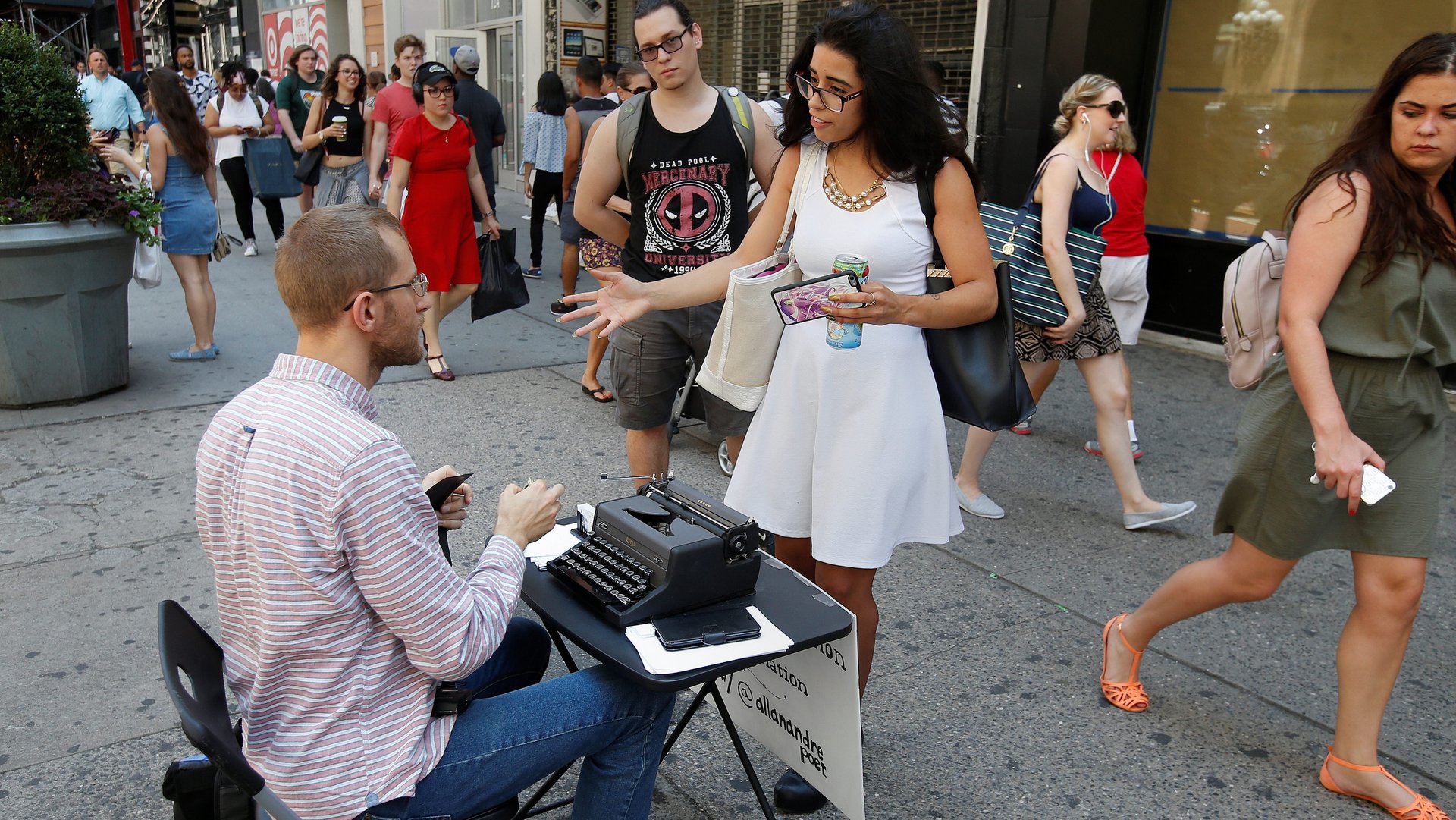Making a living as a literary author is damn near impossible, a report says
It’s getting harder and harder to be a writer who just writes.


It’s getting harder and harder to be a writer who just writes.
A new report (pdf) from the government-funded Arts Council England sums up the health of literary fiction production in the UK. The portrait painted by the council—based on 16 years of sales data, 34 interviews, and 249 survey responses—is by no means a cheery one.
The report, published Dec. 15, shows that total UK print sales from non-commercial, non-genre fiction hasn’t recovered since the 2008 financial crisis, as book prices have fallen. The report also puts numbers behind something that the industry knows anecdotally: Making a living as a literary fiction writer is a dismal endeavor. As the very top authors take up a larger chunk of a shrinking pie, there’s little room for authors in the middle to make a viable amount of money.
Over the past five years, the report says, the 1,000th-top-selling book sold around 3,000 to 4,000 copies. With typical royalties of 8-10% in the UK, an author might expect to make about about £5,000 ($6,700) off that book—if they had already made back their advance payment, which can vary widely. Considering some of these top authors have multiple books published, that’s fewer than 1,000 authors making this much or more.
And it seems to be getting worse. As the report notes, the 100th book in 2011 sold 55,000 copies, compared to just 35,000 copies in 2015.
Of course the disparity gets much greater the closer authors get to the very top. Writes the council:
2015 Nielsen BookScan data suggests that the top 1% of authors accounted for 32.8% of all sales and within this, the top 0.1% accounted for 13% of total sales. Meanwhile the top 5% accounted for 42.3% and the top 10% accounted for 57% of all sales.
“What all of this means is that it is harder to be a professional author full stop,” the writers conclude.
The upshot is that book writers have to rely on means other than book-writing to produce the literature we all love to consume. This is a familiar story to American writers. A report in 2015 from the Authors Guild, a group which supports and lobbies on behalf of American writers, said that average writing-related income had decreased for its surveyed members, down to $17,500 in 2015, from $25,000 in 2009.
The unsexy truth is that teaching jobs, prize money, creative writing workshops, speaking gigs, and literary consulting are really what helps pure literature stay afloat.